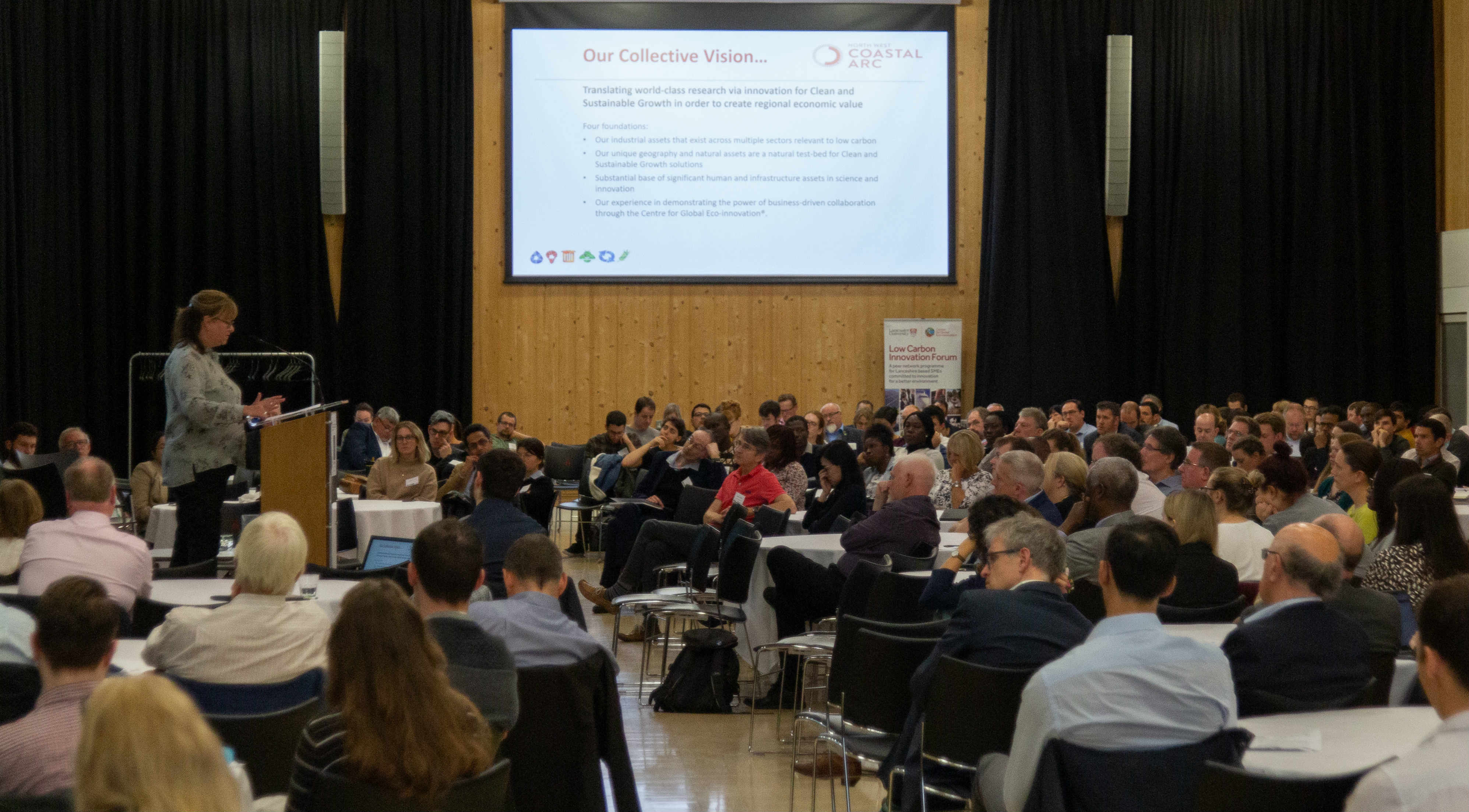New conference highlights innovation for clean and sustainable growth

The inaugural Innovation for Clean and Sustainable Growth conference, which was organised by Lancaster University’s award-winning Centre for Global Eco-Innovation team, was held at the University’s Bailrigg campus this week.
The two-day event showcased how recent research advances are driving eco-innovation across six key global challenge themes – energy, waste, food, water, resource efficiency and natural capital.
Eco-Innovation, which centres on businesses developing new products, processes and services that are better for business and better for the environment, is a key mechanism for delivering the changes required to respond to climate change.
Eco-Innovation has significant strategic economic growth potential for the region. A Government-commissioned Science Innovation Audit led by Lancaster University has demonstrated that the North West Coastal Arc hosts a unique range of assets in research quality, people, technology, and place to exploit clean growth and become world leading in the development of low carbon and eco-innovative products, services and technologies.
The conference included keynote speeches across the two days from: Sir Ed Davey, Former Secretary of State for DECC; Mark Knowles, Head of Low Carbon Liverpool City Region LEP; Professor Ratemo Michieka, Chair of the Africa Science Research Innovation Council; and David Harland, CEO at Eden Project International.
The conference, which was supported by the European Regional Development Fund, Barclays and Blackpool Airport and Hillhouse Technology Enterprise Zones, included talks and panel discussions involving policy experts from Government, environmental scientists and representatives from business. In addition, a showcase of successful eco-innovation case studies demonstrated how businesses have been able to grow while also delivering new products and services that improve our environmental impact.
Dr Andy Pickard, Manager of the Centre for Global Eco-Innovation, said: “It is clear that if we are to tackle the significant challenges associated with climate change, and other issues affecting our environment, it is absolutely critical for industry, science and policy-makers to work together to create solutions and capitalise on economic opportunities.
“The inaugural ECO-I 2019 Conference brought together representatives from these different sectors to highlight, and learn from, the success stories of businesses that have been able to innovate new products and services, create jobs and contribute to economic growth, while also benefitting the environment.”
The Centre for Global Eco-Innovation supports businesses to develop new products and services with environmental benefits. The Centre delivers high quality business-led research through Lancaster University and its partners; University of Liverpool, Liverpool John Moores University, University of Cumbria, University of Chester, University of Central Lancashire and the Centre for Ecology and Hydrology.
Since 2012 the Centre, which is part-funded by the European Regional Development Fund, has supported more than 500 SMEs. According to an independent audit of the Centre, conducted by Amion in 2014, more than 80 per cent of companies stated that working with the Centre had enabled them to overcome the lack of qualified staff, the most commonly cited barrier to innovation. Similarly, more than 80 per cent of companies said the Centre had helped them to develop new products and services, and to better understand their markets.


